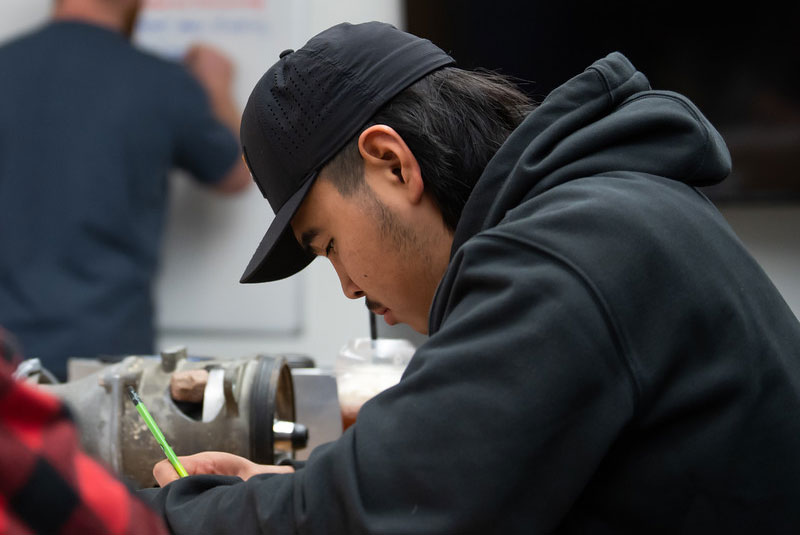Fishing Vessel Training
by Vicki Heisser, Jessica Young |
Since 1998, Prince William Sound College has assisted Alyeska Pipeline Service Company in conducting annual oil spill response training under the Ship Escort/Response Vessel System (SERVS) Fishing Vessel Program by providing instructors and logistical support.
The Fishing Vessel Program is required by the oil discharge prevention and contingency plans for both the Valdez Marine Terminal and the tankers which transport crude oil through Prince William Sound. Without a trained fishing vessel fleet, a response to a crude oil spill in the Sound could not be carried out.
Annual fishing vessel training instructs Tier I and Tier II fishing vessel crews in response equipment use, response tactics, communications, Incident Command System, and response plans through indoor and outdoor classes and on- water drills, so they are prepared to respond to a major oil spill at any time. The training is offered in six ports, Kodiak, Homer, Seward, Whittier, Valdez, and Cordova, to over 1800 students on more than 420 fishing vessels. Last year the classroom portion of the training was moved online, and will continue online this year.
The Fishing Vessel Training depends on dedicated instructors, see below to learn more about two of these instructors:
Karl Pulliam: In 2003, Karl Pulliam began teaching HAZWOPER (Hazardous Waste Operations and Emer- gency Response) courses with Prince William Sound College. Since then, teaching has been his passion. Karl came to teaching after years in the industry. In the 1980s, he worked as a commercial fisherman. When the Exxon Valdez oil spill happened, he wanted to be part of the solution in not letting it happen again.
As Karl worked on many oil spill responses, those experiences and a desire to help people respond efficiently and safely made him become a HAZWOPER trainer at PWSC, where he continues to help others.
“With the staff support at PWSC and fellow instructors that mentored me and shared a collective vision, we continue to develop and improve this program. In each class, we can feel the potential that there will be something discussed that sparks learning in some or all class members.”
Dennis Bromley: After graduating from the University of Michigan, Dennis Bromley and his wife were ready for adventure. Dennis shared, “With a teaching certificate and two master’s degrees, one in wildlife management and one in biology, I was prepared to go in a number of directions. My wife and I came to Alaska in September of '68, no jobs, just coming to the last frontier to see what opportunities were there.”
Today, and for the past seven years, Bromley works as a PWSC instructor with the Fishing Vessel Oil Spill Response Training program. Bromley co-teaches the crude oil portion of the program with Dane Parks and Karl Pulliam. As an instructor, Bromley knows it’s im- portant to give his students his best.









